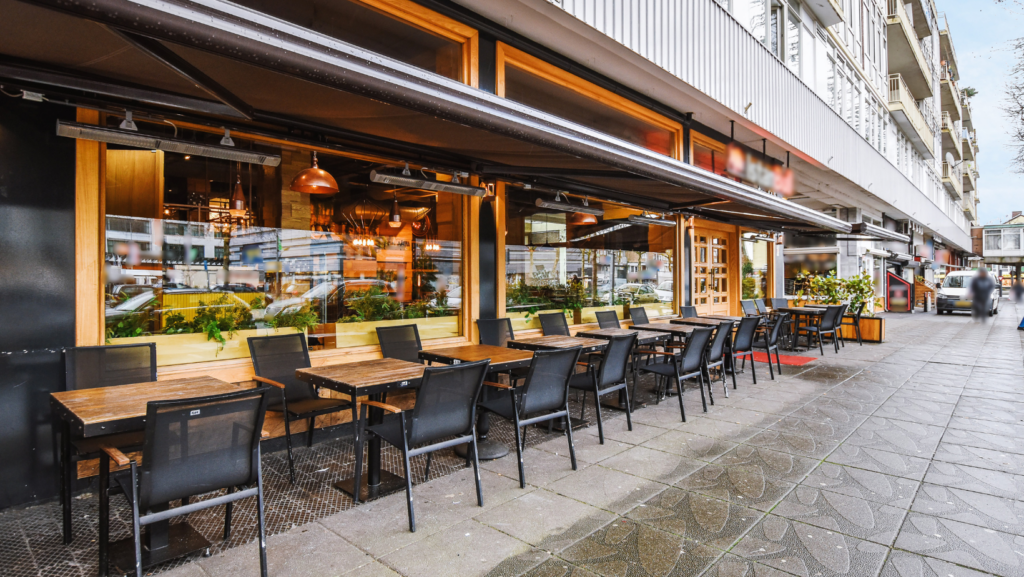In the digital age, the restaurant industry is evolving faster than ever. A robust online presence isn’t just a nice-to-have anymore—it’s a must-have. This article will delve into the world of digital marketing strategy for restaurants.
From social media campaigns to search engine optimization, we’ll explore how these digital marketing strategy for restaurants can help eateries thrive in a competitive landscape.
Digital Marketing Strategy for Restaurants
In this digital era, restaurants cannot afford to overlook the opportunities presented by a well-structured digital marketing strategy for restaurants. This section delves further into specific components of these strategies, with an emphasis on the role of social media and email marketing tactics.
The Role of Social Media

Social media has morphed into a potent tool for digital marketing, particularly in the restaurant industry. Restaurants normally utilize various platforms – Facebook, Instagram, Twitter, Pinterest, among others – each with its unique perks. Instagram allows restaurants to engage with customers via visually appealing food images and videos, boosting visibility.
Additionally, social media allows for the promotion of special offers or events, proving an effective method of attracting new patrons. With user-generated content, restaurants have an organic way to show the authenticity of their brand and promote customer engagement. Metrics like shares, likes and comments measure engagement, helping restaurants understand their customers better.
Email Marketing Tactics
Moving away from the social scene, email marketing emerges as yet another vital part of a digital marketing strategy for restaurants. Email marketing offers a personal touch, fostering a direct connection between the restaurant and the consumer.
Primarily, restaurants can use emails to distribute updates, promotional offers, menu changes, and exclusive discounts to their loyal customers. This not only increases the likelihood of repeated visits from customers but also helps turn these customers into brand ambassadors.
Leveraging SEO and Local SEO
SEO (Search Engine Optimization) and Local SEO are pivotal components in digital marketing strategy for restaurants. They constitute essential methods for improving a restaurant’s search engine ranking, thereby enhancing their online visibility and attractiveness to potential diners.
Optimizing Your Restaurant’s Website

Optimizing a restaurant’s website goes beyond just creating an aesthetically pleasing design. It extends to enhancing its functionality, improving its load speed, ensuring it’s mobile-friendly, and incorporating quality, optimized content. Essential factors in optimization include:
- Keywords: Incorporating relevant keywords in a restaurant’s website content makes it appear in search engine results. For instance, if it’s an Asian-themed restaurant in New York, the keywords could be ‘Best Asian restaurant in New York.’
- Meta Descriptions: Crafting compelling and concise meta descriptions can boost click-through rates. They must contain relevant keywords and summarize page’s content effectively.
- Image Optimization: Images on the website, such as mouth-watering dishes photos, must bear the right file format, size, and captioning for an improved loading speed and indexing.
Managing Online Feedback

Online feedback lay an integral role in local SEO. They possess a profound impact on the digital reputation of a restaurant. They reflect the customers’ experience, influencing others in their decision-making process. Managing online feedback entails:
- Encouraging Feedback: Restaurateurs can request satisfied customers to leave a feedback on platforms like Google My Business, Yelp, and TripAdvisor.
- Responding to Clients Feedback: Whether positive or negative, it’s crucial to respond to all feedback. It shows appreciation for the customer’s effort, promotes transparency, and exhibits commitment to customer satisfaction.
- Monitoring Feedback: Regular monitoring allows the identification of areas that need improvement or promotion of practices that contribute positively to customers’ experiences.
Beyond Online Presence
Mastering digital marketing strategy for restaurants isn’t just about having an online presence. It’s about strategically leveraging social media, email marketing, SEO, and Local SEO to enhance visibility. The power of a well-optimized website can’t be underestimated, with keywords, meta descriptions, and image optimization playing key roles. Yet, it doesn’t stop there. Managing online feedback is equally vital, as it directly impacts a restaurant’s digital reputation.

